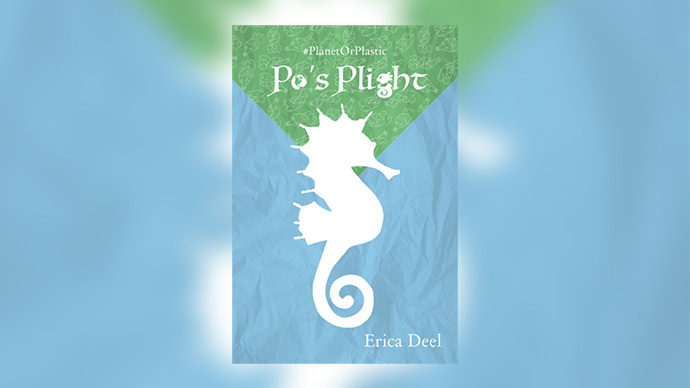Writing a Story for Nat Geo
Over on Wattpad, a pretty awesome sharing/reading platform for writing, National Geographic is currently holding a #planetorplastic writing competition based around two specific image prompts: a person swimming in an ocean of trash and a seahorse holding a pink Q-tip in its tail. I chose the latter as my inspiration image, and off I went on telling the story of Po and his desire to build a good house for his expanding family, with some pretty unique building materials that attract unwanted attention. Read it here to find out what happens!
So, getting to this story was not a one-and-done sort of affair (no decent writing is), but I didn’t expect how many revisions it would take me to unearth Po’s story.
So far, my flash fiction has gone through two rounds of revision, but this one? Four large rounds of story-overhaul revision, and about three rounds of fine-tuning/tweaking editing. That’s a LOT for a 500-word story that’s just a side project from your main work. At least, I think it is.
About halfway through this process, I began questioning my commitment to Po and his story. It was fine as it was, perhaps good enough to have an entry in the contest (but surely not win it); fine enough to tell a version of Po’s story and share it with the world—or whatever small section of the world would actually read it. But…
It wasn’t his story yet. I knew there was something deeper in here that I wasn’t yet finding, that there was a story that I could be proud of and stand by no matter what happened. It’s not the winning I’m concerned with; it’s the integrity of the work. Ironically, I had spent too much time with Po to let his story go without more work.
As Macbeth said, “ I am in blood / Stepped in so far that, should I wade no more, /Returning were as tedious as go o’er” (Shakespeare, 3.4.142-144). Basically, stopping would be just as bad as keeping going, and actually worse as I wouldn’t have the tangible result of a good story at the end of it all. So on I went!
The other thing that was brought to my attention by Scott Wilson of the ScottWritesStuff stream is that writing is writing. Practice in the craft is all that matters, and practice in revision? That’s priceless, especially with something so short that you can actually get through several rounds to a great final draft in just a few weeks. Novels take infinitely longer than that, and everything I do with short fiction is just preparing me for the big stuff. This was a great point, especially because I’ve been touting myself as a “student of writing” lately (to best explain my current work/writing situation to outsiders, framing it as if I were going back to school for a mid-life career change). Of course I need to be practicing! And the important thing to remember is that practice comes in all forms and sizes, as does writing.
And now that I’ve finally unearthed Po’s story and submitted it to the competition, I feel wonderful. They’ve extended their deadline from November 30 to December 30 (so if you want to go write something, go!), so I could have spent the next month tinkering with this piece. But I didn’t need to, because I had already done the hard work. It’s as good as I can make it, and no amount of tinkering will make it necessarily “better,” just different.
Novels take such a long time to write that it’s easy to lose the forest for the trees. It’s easy to think that your idea is stale, that no one will want to read it, that going through the never-ending process of getting it out into the world isn’t actually worth it.
As much as our cultural perception around writing is beautiful whimsy, the reality is that it’s hard work—and often painful.
In in one of this year’s NaNoWriMo pep talks, Andy Weir shared the most accurate analogy for writing that I’ve ever heard: “Writing isn’t like playing music, where the act itself is rewarding. It’s more like gardening, where the work is hard and unpleasant, but the result is beautiful.”
Doesn’t that just kick you in the teeth, fellow writers?
Anyway, the point behind all that is short fiction is an AMAZING and FREEING way to actually enjoy the fruits of your writing labor before your novel is done. You’re getting the practice in both drafting and revision, and you get to share it with a (hopefully captive) audience. WIN. Why has it taken me so long to discover this???
I love “Po’s Plight,” I love the practice around it, and I love these short-fiction breaks in the middle of my regular writing work. It’s delightful, and I hope you’re all enjoying the glimpse into my writing as well. I’m enjoying sharing them with all of you!


